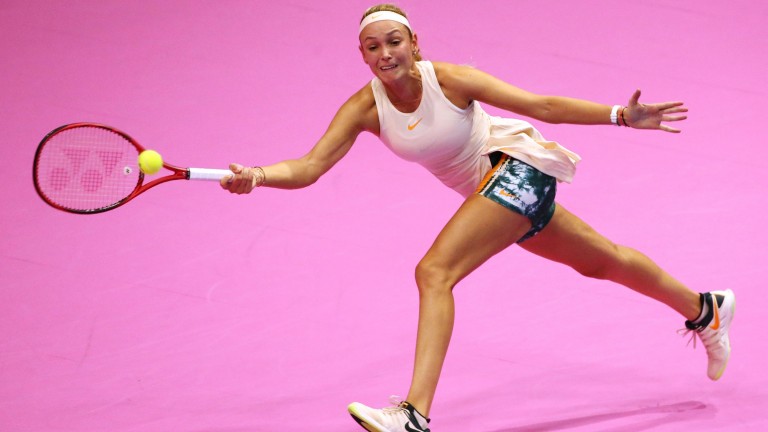

Rybakina, born and raised in Moscow, changed allegiances from Russia to Kazakhstan four years ago – a switch that seems particularly pertinent at this year’s tournament given the decision by Wimbledon organizers to exclude Russian and Belarusian players amid the ongoing war in Ukraine. Rybakina defeated former Wimbledon champion Simona Halep on Thursday. No matter who wins, history will be made because when the two meet on Centre Court, a first-time Wimbledon winner will be crowned and either Tunisia or Kazakhstan will celebrate their first grand slam singles champion. The tall, big-serving Rybakina, however, has lost just one set and is likely to be Jabeur’s toughest opponent so far having dismantled 2019 Wimbledon champion Simona Halep in her semifinal on Thursday. Jabeur has only dropped two sets so far at this year’s Wimbledon – against Marie Bouzkova in the quarterfinals and Tatjana Maria in the semifinals. READ: Nadal withdraws from Wimbledon due to injury Hopefully, I can keep the title forever.” “When they see my matches, (they) always say sports unites people. “It’s tough times in Tunisia sometimes,” said Jabeur. Her success on the court – coupled with her friendly, easygoing demeanor off it – have seen her become a hugely popular figure back home in Tunisia, where she has earned the nickname “Minister of Happiness.” She won her first of three WTA events last year and claimed her next two – in Madrid and Berlin – earlier this season, propelling her to an all-time high of second in the world. Jabeur has enjoyed a steep rise through the world rankings over the past few years, breaking into the top 50 for the first time in 2020. Shaun Botterill/Getty Images Europe/Getty Images Jabeur celebrates defeating Marie Bouzkova in the Wimbledon quarterfinals. “I did a lot of times imagine myself giving the speech, holding the (Wimbledon) trophy, seeing the trophy,” Jabeur said.

Victory on Saturday, however, would be the greatest achievement of her career. Last year, she became the first Arab player to win a WTA title and break into the top 10 in the singles rankings. Jabeur, 27, has been a trailblazer for her region long before reaching Saturday’s final. I want to see more players from my country, from the Middle East, from Africa.” It’s not like Europe or any other countries. “In the area, we want to see more players. “Tunisia is connected to the Arab world, is connected to the African continent,” she told reporters after earning her spot in the Wimbledon final, where she will play Kazakhstan’s Elena Rybakina, herself a history-maker. This Saturday will be no different as Jabeur attempts to become the first Tunisian, first Arab and first African woman to win a grand slam in the Open Era. Whenever Ons Jabeur steps onto a tennis court, she never plays solely for herself, but for the future generations she hopes to inspire.


 0 kommentar(er)
0 kommentar(er)
